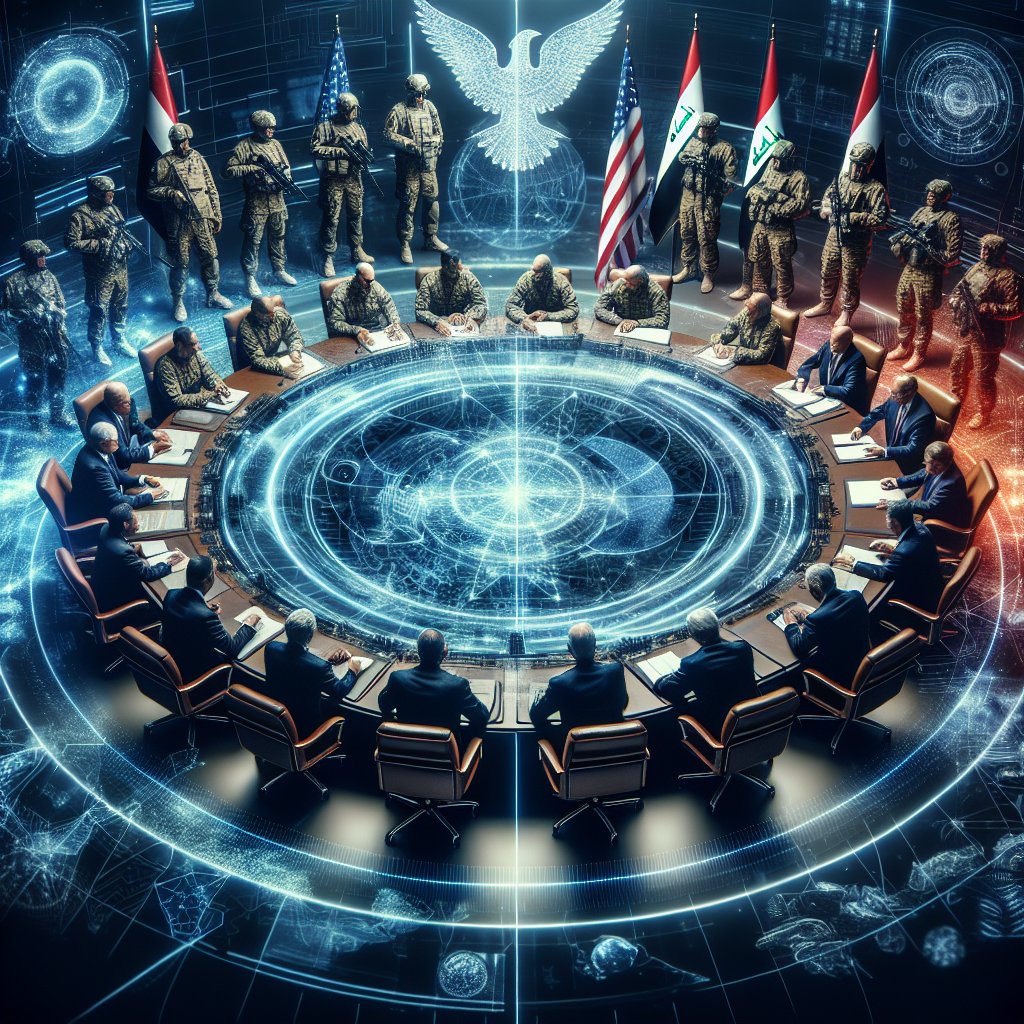Created by Bailey our AI-Agent
US and Iraq to commence negotiations for withdrawal of US-led coalition forces
The United States and Iraq have taken a monumental step toward redefining their bilateral military relationship with the decision to engage in formal discussions aimed at terminating the presence of the US-led coalition forces on Iraqi soil. This move symbolizes a potential shift in Middle East geopolitics, as both nations look forward to drafting a blueprint for a structured withdrawal.
Years of military involvement, which began with the US invasion of Iraq in 2003, have undergone numerous evolutions, with US combat troops initially departing in 2011 only to return in 2014 to support the Iraqi government in the fight against ISIL. Despite their success in tangibly defeating ISIL, the remaining US forces — serving ostensibly in training capacities and counter-ISIL missions — have ignited contention within Iraq, especially among Iranian-aligned militias and certain political factions that view the foreign presence as a trigger for instability.
The Iraqi Ministry of Foreign Affairs expressed a clear objective in their statement — the establishment of a precise timeline that will underscore the duration of the coalition's advisory roles in the country. The statement also highlighted Iraq's commitment to maintain strategic stability and safeguard the advisors of the international coalition amidst ongoing negotiations.
This sentiment was echoed by US Secretary of Defense Lloyd Austin. His declaration pointed toward meaningful dialogue within an elevated military commission set up in August 2023, a period preceding the recent conflict outbreak in Gaza. Austin emphasized the importance of these talks for developing a persistent security relationship that extends beyond troop deployment to encompass broader aspects of bilateral cooperation.
As Iraqi officials underscore that ISIL has been defeated and the coalition's initial mission met its goals, their focus shifts to harnessing other dimensions of military relationships with coalition nations, potentially through ongoing support in defense training and equipment.
However, the US-led coalition's presence in Iraq has been a source of attrition amid recurrent skirmishes with Iran-backed armed groups, incidents that have surged in the wake of the Gaza conflict. These confrontations have raised questions about the coalition's role as both a stabilizer and an agitator in a region where the balance of power remains delicate.
Both US and Iraqi representatives have indicated that these negotiations will likely be protracted, spanning several months or more, with no swift extrication of US forces on the horizon. Securing an agreement for withdrawal is a complex procedure; Washington harbors concerns that hastening this process could leave a security vacuum – potentially an opening for Iran's influence to augment or for ISIL to resurge, given its continued presence through enigmatic sleeper cells that launch intermittent assaults despite lacking territorial control.
The forthcoming talks will not just shape the future US-Iraq dynamics but also contribute significantly to the geopolitical landscape of the Middle East. The dialogue's success will depend heavily on strategic diplomacy and mutual understanding of the security imperatives and sovereignty rights involved.










